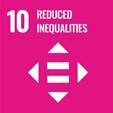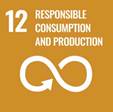2023 to 2027 Departmental Sustainable Development Strategy
Cat. No.: DP2‑9E‑PDF | ISSN: 2817‑4631
Unless otherwise specified, you may not reproduce materials in this publication, in whole or in part, for the purposes of commercial redistribution without prior written permission. To obtain permission to reproduce Government of Canada materials for commercial purposes, apply for Crown Copyright Clearance by contacting:
Email: commission@mpcc‑cppm.gc.ca
© His Majesty the King in Right of Canada, as represented by the Chairperson of the Military Police Complaints Commission of Canada, 2023.
Alternate version available
Aussi disponible en français
Section 1: Introduction to the Departmental Sustainable Development Strategy

The 2022 to 2026 Federal Sustainable Development Strategy (FSDS) presents the Government of Canada’s sustainable development goals and targets, as required by the Federal Sustainable Development Act. This is the first FSDS to be framed using the 17 Sustainable Development Goals of the United Nations 2030 Agenda and provides a balanced view of the environmental, social, and economic dimensions of sustainable development.
In keeping with the purpose of the Act, to make decision-making related to sustainable development more transparent and accountable to Parliament, the Military Police Complaints Commission of Canada (the Commission) supports the goals laid out in the FSDS through the activities described in this Departmental Sustainable Development Strategy (DSDS).
The Federal Sustainable Development Act also sets out 7 principles that must be considered in the development of the FSDS as well as DSDSs. These basic principles have been considered and incorporated in the Commission’s DSDS.
To promote coordinated action on sustainable development across the Government of Canada, this departmental strategy integrates efforts to advance Canada’s implementation of the 2030 Agenda National Strategy, supported by the Global Indicator Framework and Canadian Indicator Framework targets and indicators. The strategy also now captures Sustainable Development Goals initiatives that fall outside the scope of the FSDS to inform the development of the Canada’s Annual Report on the 2030 Agenda and the Sustainable Development Goals.
Section 2: The Military Police Complaints Commission of Canada’s Sustainable Development Vision
The Commission is committed to taking action on inequality and advancing reconciliation with Indigenous Peoples including by increasing opportunities for Indigenous businesses within its organization.
The Commission supports the commitments in the 2022 to 2026 FSDS to make sustainable development decision-making more transparent and accountable to Parliament. It also contributes to an integrated, whole-of-government view of activities supporting environmental sustainability.
The Commission is committed to advancing greening government actions and supports the 2022 to 2026 FSDS Greening Government goal through training and awareness. The Commission is advancing plans to reduce paper use / be paperless and establish electronic processes for delivering information in conjunction with its overall review of guidelines and processes. The Commission has increased online meetings and Outreach activities and will continue to seek ways to limit the negative environmental effects of its activities.
Section 3: Listening to Canadians
As required by the Federal Sustainable Development Act, the Commission has considered comments on the draft 2022 to 2026 FSDS made during the public consultation conducted by Environment and Climate Change Canada (ECCC) held from March 11 to July 9, 2022.
During the public consultation, more than 700 comments were received from a broad range of stakeholders, including governments, Indigenous organizations, non-governmental organizations, academics, businesses, and individual Canadians in different age groups and of various backgrounds. The draft FSDS was also shared with the appropriate committee of each House of Parliament, the Commissioner of the Environment and Sustainable Development, and the Sustainable Development Advisory Council for their review and comment.
What We Heard
Considering the submissions received by the ECCC, the Commission identified the following sustainable development priorities. We will strengthen content on green procurement, including through a green procurement target and by implementing net-zero procurement to incentivize companies’ voluntary engagement in the race to net zero. We will also assess procurement activities and continue to ensure early opportunities for Indigenous businesses.
What We Did
The Commission took the above-mentioned key priorities and issues into consideration in this DSDS.
Please find more information on the FSDS public consultation and its results in the FSDS Consultation Report.
Section 4: The Military Police Complaints Commission of Canada’s Commitments




GOAL 10:
ADVANCE RECONCILIATION WITH INDIGENOUS PEOPLES AND TAKE ACTION ON INEQUALITY
FSDS Context:
This Goal’s focus on taking action on inequality and advancing reconciliation with First Nations, Inuit, and Métis communities draws inspiration from Sustainable Global Indicator Framework Targets:
- 10.2: By 2030, empower and promote the social, economic, and political inclusion of all, irrespective of age, sex, gender, disability, race, ethnicity, origin, religion or economic or other status.
- 10.3: Ensure equal opportunity and reduce inequalities of outcome, including by eliminating discriminatory laws, policies and practices and promoting appropriate legislation, policies, and action in this regard.
Reconciliation with Indigenous Peoples is essential to addressing social, economic, and environmental inequalities and achieving substantive equality. Urgent action is needed to close the social, economic, health, environmental protection, and educational gaps between Indigenous Peoples and the rest of Canadians to ensure that everyone in Canada has the same opportunities, regardless of who they are or where they were born.
In August 2021, the Government of Canada announced measures to renew and strengthen its economic relationship with Indigenous Peoples by increasing opportunities for Indigenous businesses. The Commission has started assessing early opportunities for participation by Indigenous businesses by:
- Assessing procurement activities for potential Indigenous participation in order to contribute gradually to reaching the 5% Target of Value of Federal Government contracts awarded to businesses managed and led by Indigenous Peoples; and
- Applying early opportunities for Indigenous businesses to submit bids and reviewing our processes with stakeholders to identify barriers for Indigenous businesses.
Additional Results: What We Achieved in 2023
- In September 2023, the Commission organized the Kairos blanket exercise which is an interactive and experiential teaching tool that explores the historic and contemporary relationship between Indigenous and non-Indigenous Peoples in Canada. This mandatory training at the Commission was developed in collaboration with Indigenous Elders, Knowledge Keepers and educators.
- The Commission consulted First Nations Chiefs of Police on our bid selection process for contract investigators to attract Indigenous retired police officers to our pool. Several meetings were held during which potential barriers were discussed and feedback was obtained on the proposed criteria prior to posting. The First Nations Chiefs were actively engaged and circulated the call-out in their communities. In the future, such outreach and processes will continue to inform our procurement for investigator pools.
- A contract with an Indigenous owned Company was extended in 2023 for Executive coaching services to assist with the Commission’s workplace transformation post pandemic.
Target theme: Advancing reconciliation with First Nations, Inuit, and the Métis communities.
Target: Between 2023 and 2026, and every year on an ongoing basis, develop and table annual progress reports on implementing the United Nations Declaration on the Rights of Indigenous Peoples Act.
| IMPLEMENTATION STRATEGY | DEPARTMENTAL ACTION | PERFORMANCE INDICATOR STARTING POINT TARGET |
HOW THE DEPARTMENTAL ACTION CONTRIBUTES TO THE FSDS GOAL AND TARGET AND, WHERE APPLICABLE, TO CANADA’S 2030 AGENDA NATIONAL STRATEGY AND SDGS |
|---|---|---|---|
| Implement the United Nations Declaration on the Rights of Indigenous People Act. | Assess procurement activities and apply early opportunities for Indigenous businesses. Program: Contract Authority in consultation with Corporate Services |
Performance indicator: Starting point: 3% Target: Reaching the mandatory 5% Government of Canada Objectif |
Relevant targets or ambitions:
Applying early opportunities for Indigenous businesses will ensure that the Commission contributes to the Federal government’s commitment to award contracts to businesses managed and led by Indigenous Peoples. |

GOAL 12:
REDUCE WASTE AND TRANSITION TO ZERO-EMISSION VEHICLES
FSDS Context:
The Commission identified measures to reduce energy consumption, improve energy efficiency and reduce greenhouse gas emissions in its operations. These measures include green procurement practices. For example, the Commission integrated environmental considerations into procurement practices by procuring green items and providing training on green procurement to credit card holders. The Commission is also moving forward with plans to reduce paper use and establish electronic processes for delivering information in conjunction with its overall review of guidelines and processes. For example, Commission status letters, reports and decisions are now being transmitted to parties involved in the complaints process electronically, when possible, which includes the transmission of protected documents through a secure program via Canada Post. In addition, the Commission’s outreach program is delivered to our target audiences virtually and materials are provided electronically rather than in paper format.
Target Theme: Federal Leadership on Responsible Consumption
Target: The Government of Canada’s procurement of goods and services will be net-zero emissions by 2050, to aid the transition to a net-zero, circular economy.
| IMPLEMENTATION STRATEGY | DEPARTMENTAL ACTION | PERFORMANCE INDICATOR STARTING POINT TARGET |
HOW THE DEPARTMENTAL ACTION CONTRIBUTES TO THE FSDS GOAL AND TARGET AND, WHERE APPLICABLE, TO CANADA’S 2030 AGENDA NATIONAL STRATEGY AND SDGS |
|---|---|---|---|
| Strengthen green procurement criteria | Ensure decision-makers have the necessary training and awareness to support green procurement. Ensure training is provided to acquisition card holders on green procurement. Program: |
Performance indicator: Starting point: 43% of targeted employees. Target: 100% and subsequent retention. |
Relevant targets or ambitions: Providing training to decision-makers and employees involved in acquisition processes will ensure the Commission procures goods and services from suppliers that offer green products and have implemented green supply chains. Ensuring Commission suppliers have sustainable processes supports the Commission’s commitment to greening all of our operations. |

GOAL 13:
TAKE ACTION ON CLIMATE CHANGE AND ITS IMPACTS
FSDS Context:
The Commission identified a range of measures to reduce energy consumption, improve energy efficiency and reduce greenhouse gas emissions from its operations. These measures include ensuring to take into account sustainability when choosing modes of travel. For example, the Commission will offer employee engagement initiatives and energy awareness training to increase employee knowledge and responsiveness to environmental concerns across our operations. The Commission has also increased online meetings including Outreach Activities and it will continue to seek ways to limit negative environmental effects from its activities.
Finally, the Commission maintained the implementation of its efficient hybrid model established in the first half of 2022 and which took effect in September 2022. The hybrid model reduces the carbon footprint of employees. In addition, progressive solutions have been put in place to increase the global on-site presence of employees, balancing the benefits of the hybrid model, and fostering employee collaboration. The Commission made technology investments in Boardroom Equipment to support the hybrid work arrangements.
Target theme: Federal Leadership on Greenhouse Gas Emissions Reductions and Climate Resilience
Target: The Government of Canada will transition to net-zero carbon operations for facilities and conventional fleets by 2050
| IMPLEMENTATION STRATEGY |
DEPARTMENTAL ACTION | PERFORMANCE INDICATOR STARTING POINT TARGET |
HOW THE DEPARTMENTAL ACTION CONTRIBUTES TO THE FSDS GOAL AND TARGET AND, WHERE APPLICABLE, TO CANADA’S 2030 AGENDA NATIONAL STRATEGY AND SDGS |
|---|---|---|---|
| Implement the Greening Government Strategy through measures that reduce greenhouse gas emissions, improve climate resilience, and green the government’s overall operations. | Identify measures to reduce energy consumption and improve energy efficiency. Assess the relevance of printed copies of documents and reports. Program: |
Performance indicator: 1. Percentage of local printers used by person employed working from home and returned to the Commission’s central office. Starting point: 32% persons employed have a local printer at home. Target: 25% of reduction |
Relevant targets or ambitions: The reduction of local printers for persons employed working from home ensures that the Commission fully adheres to the Treasury Board Secretariat’s Policy on Services and Digital. |
2. Percentage of the reduction of the number of paper copies printed on the office photocopier and the number of printed reports documents. Starting point: Number of printed copies as of October 2, 2023 Target: 50% of reduction |
Reducing the number of printed copies will reduce the amount of space required to store paper documents and support the Commission’s commitment to be paperless. |
||
| 3. Percentage of decrease in transportation expenses and increase in low-greenhouse gas emitting modes of transportation. Starting point: total spending as of March 31, 2024 Target: 5% of reduction |
Increasing low-greenhouse gas emitting modes of transportation supports the Commission’s commitment to reducing greenhouse gas emissions. Continuing the modernization of the Information Technology infrastructure to reduce electricity consumption in the server room and reduce the risk of server breakdowns due to air-conditioning problems. |
SECTION 5: Integrating Sustainable Development

As a federal organization, the Commission is fully committed to contributing to this Governmental Initiative. Integrate sustainable development principles will be considered when it comes to developing internal policies and operational processes.
The Commission will continue to ensure that its decision-making process includes consideration of FSDS goals and targets through its Strategic Environmental Assessment process. A Strategic Environmental Assessment for a policy, plan or program proposal includes an analysis of the impacts of the given proposal on the environment, including on relevant FSDS goals and targets.
Public statements on the results of the Commission’s assessments are made public when an initiative that has undergone a detailed Strategic Environmental Assessment. The purpose of the public statement is to demonstrate that the environmental effects, including the impacts on achieving the FSDS goals and targets, of the approved policy, plan or program have been considered during proposal development and decision making.
Approved by:
Me Tammy Tremblay, MSM, CD, LLM
Chairperson
Bruno Prévost
Senior Director, Corporate Services
Ottawa, Canada
October 6, 2023
- Date modified: